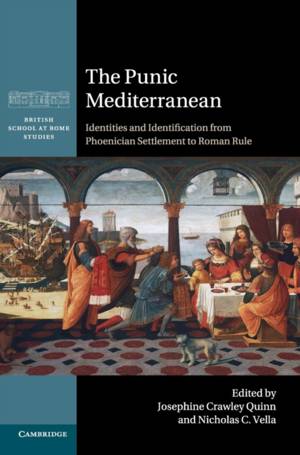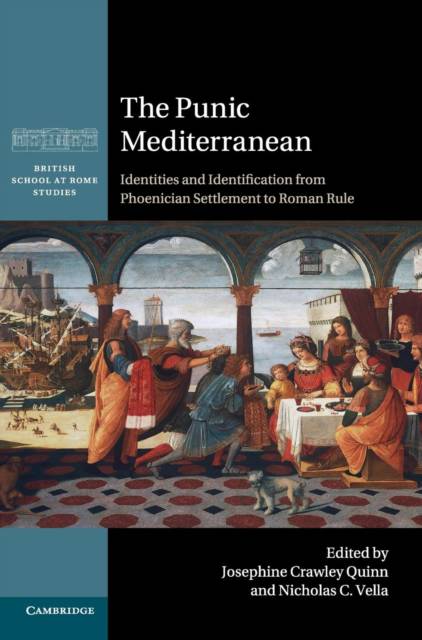
Door een staking bij bpost kan je online bestelling op dit moment iets langer onderweg zijn dan voorzien. Dringend iets nodig? Onze winkels ontvangen jou met open armen!
- Afhalen na 1 uur in een winkel met voorraad
- Gratis thuislevering in België vanaf € 30
- Ruim aanbod met 7 miljoen producten
Door een staking bij bpost kan je online bestelling op dit moment iets langer onderweg zijn dan voorzien. Dringend iets nodig? Onze winkels ontvangen jou met open armen!
- Afhalen na 1 uur in een winkel met voorraad
- Gratis thuislevering in België vanaf € 30
- Ruim aanbod met 7 miljoen producten
Zoeken
The Punic Mediterranean
Identities and Identification from Phoenician Settlement to Roman Rule
€ 153,95
+ 307 punten
Omschrijving
The role of the Phoenicians in the economy, culture and politics of the ancient Mediterranean was as large as that of the Greeks and Romans, and deeply interconnected with that 'classical' world, but their lack of literature and their oriental associations mean that they are much less well-known. This book brings state-of-the-art international scholarship on Phoenician and Punic studies to an English-speaking audience, collecting new papers from fifteen leading voices in the field from Europe and North Africa, with a bias towards the younger generation. Focusing on a series of case-studies from the colonial world of the western Mediterranean, it asks what 'Phoenician' and 'Punic' actually mean, how Punic or western Phoenician identity has been constructed by ancients and moderns, and whether there was in fact a 'Punic world'.
Specificaties
Betrokkenen
- Uitgeverij:
Inhoud
- Aantal bladzijden:
- 414
- Taal:
- Engels
- Reeks:
Eigenschappen
- Productcode (EAN):
- 9781107055278
- Verschijningsdatum:
- 2/02/2015
- Uitvoering:
- Hardcover
- Formaat:
- Genaaid
- Afmetingen:
- 180 mm x 249 mm
- Gewicht:
- 975 g

Alleen bij Standaard Boekhandel
+ 307 punten op je klantenkaart van Standaard Boekhandel
Beoordelingen
We publiceren alleen reviews die voldoen aan de voorwaarden voor reviews. Bekijk onze voorwaarden voor reviews.










